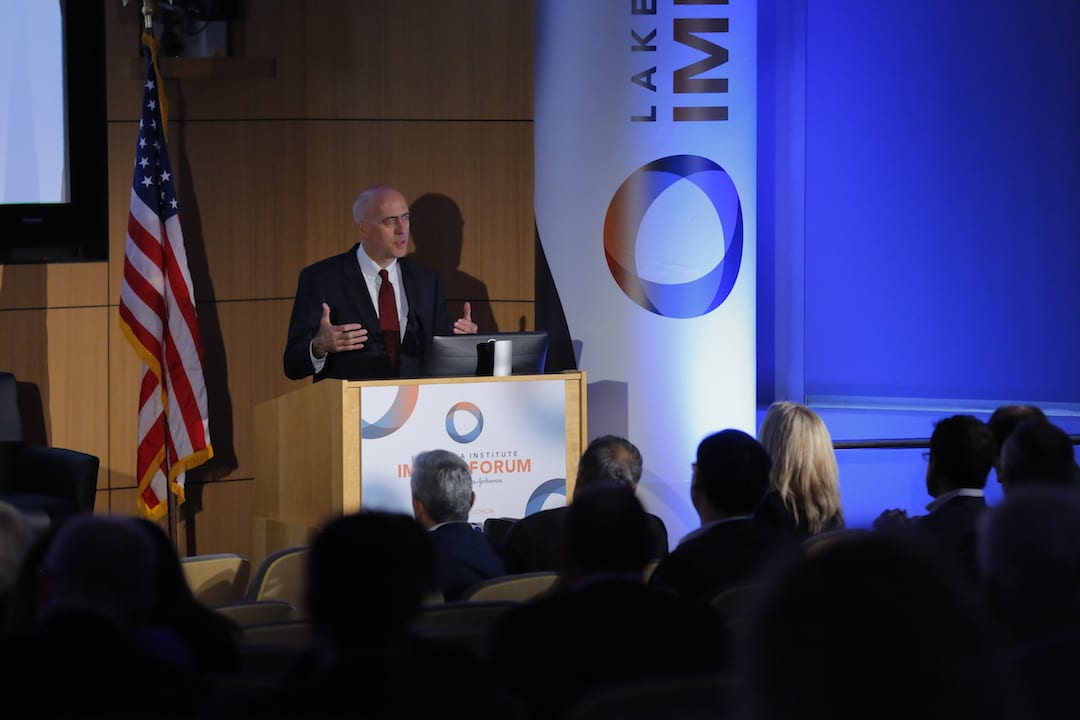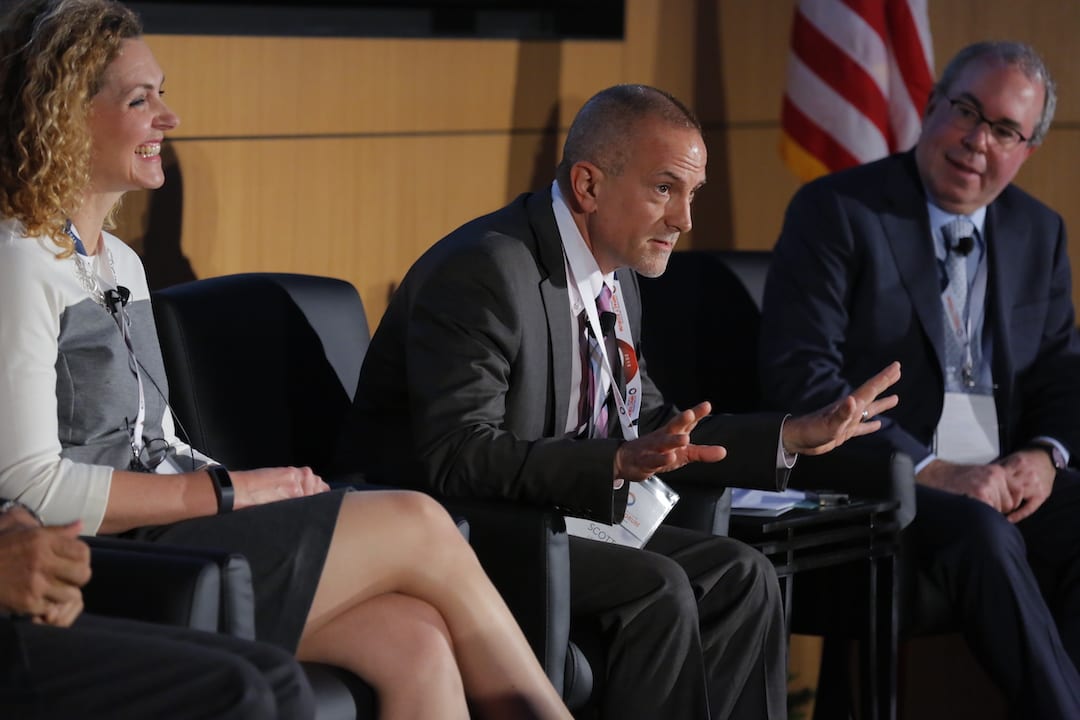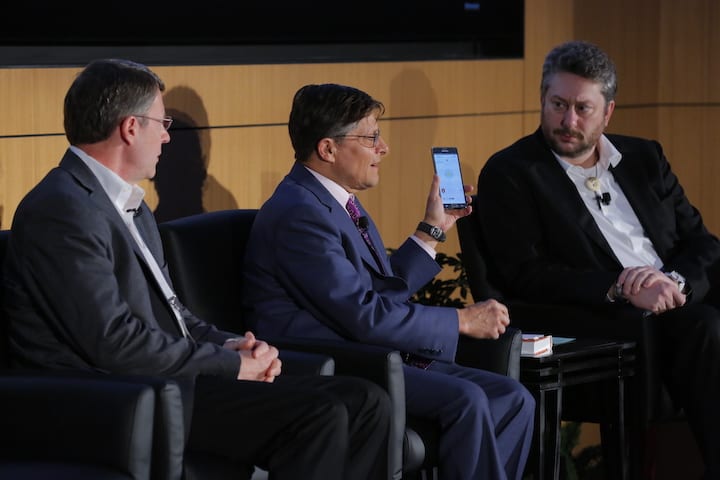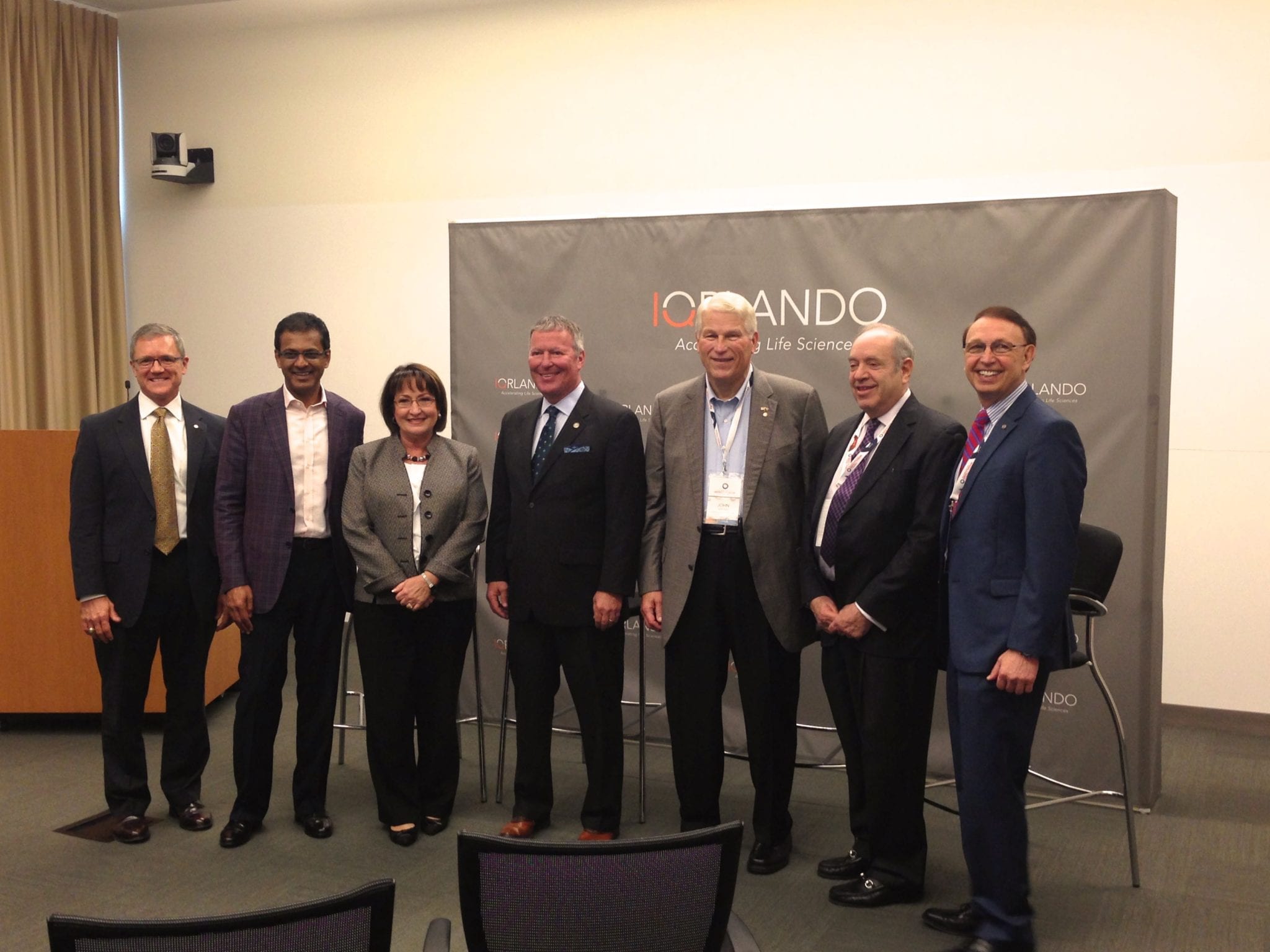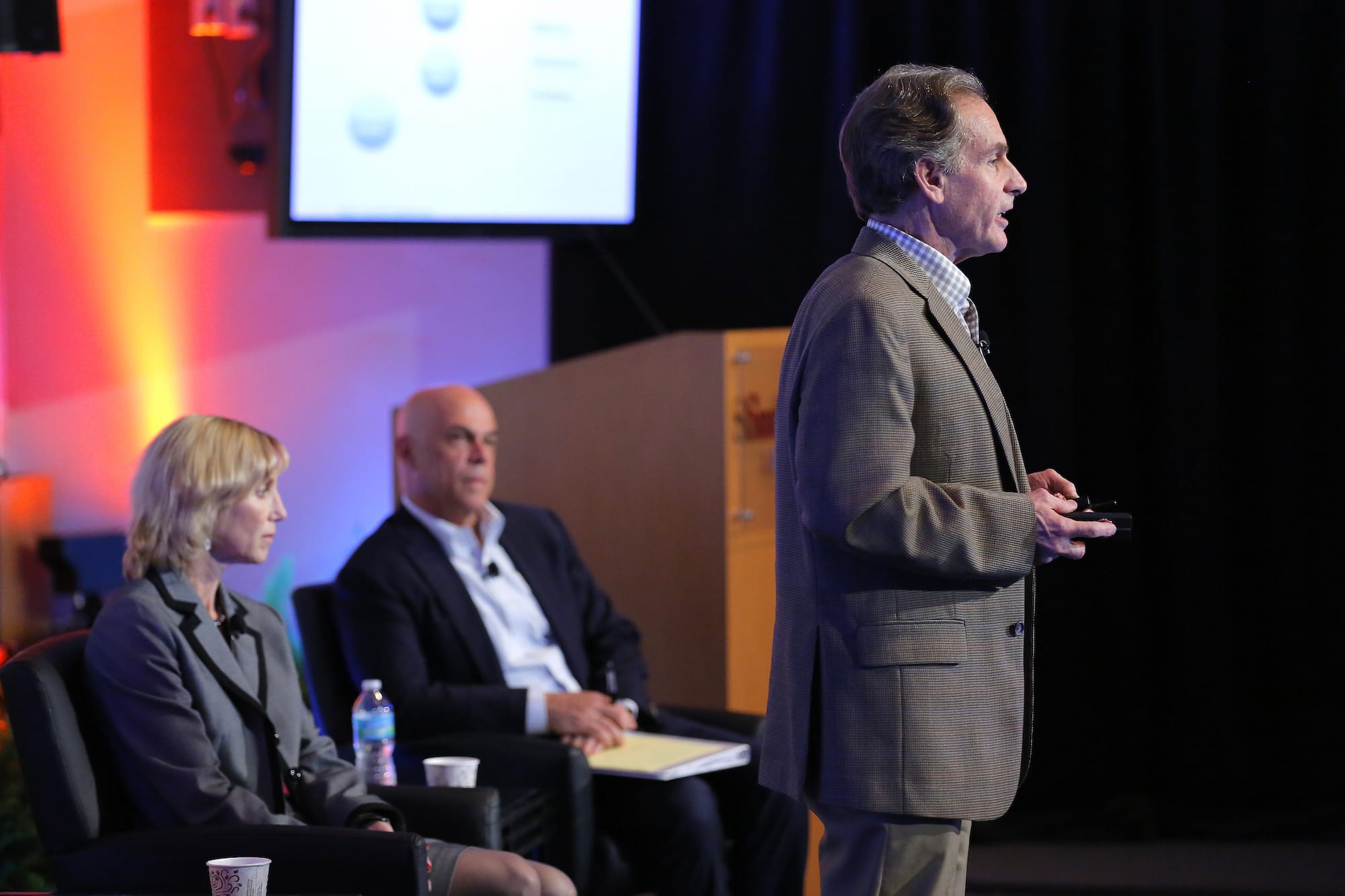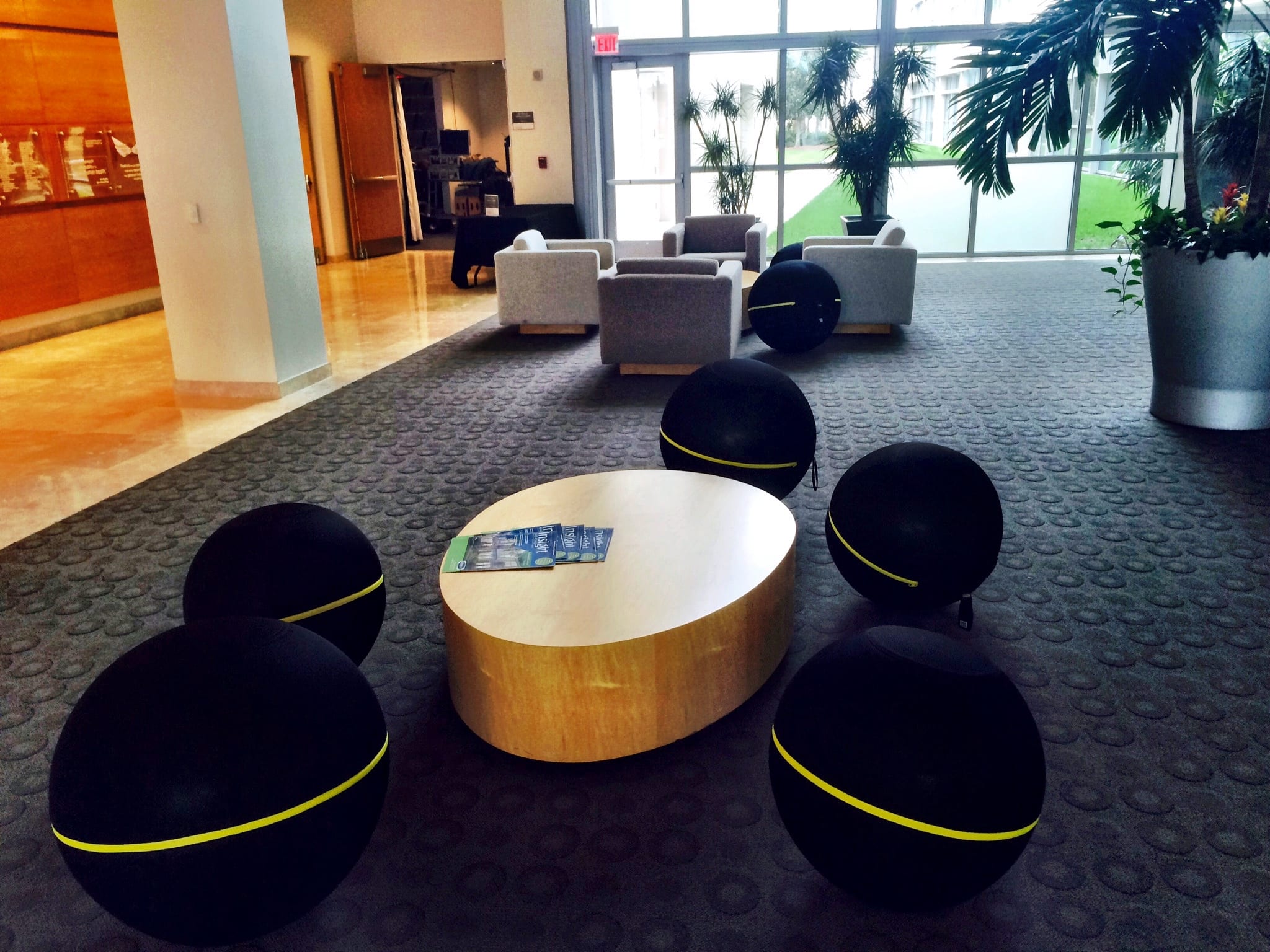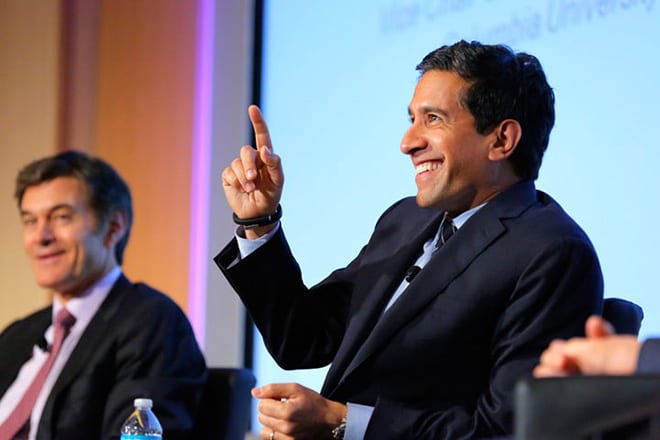
Guest post from Patrick Bartosch at the Sanford-Burnham Medical Research Institute
Health and tech leaders from across the country gathered in Orlando’s Medical City last week for the 2015 Lake Nona Impact Forum. Organized by the Lake Nona Institute, the Impact Forum strives to unlock innovation to create sustainable health communities and advance quality of life by exploring the intersections of wellness, sustainable living, and education. Speakers this year included the CEO of Johnson & Johnson, the U.S. Secretary of Veterans Affairs, the CEO of BlackBerry, as well as Sanford-Burnham CEO Perry Nisen, among many others.
The discussions covered a diverse array of topics such as the future of technology in medicine, the increasing costs of developing new treatments, building healthy communities, and leadership in veterans care. Here are a few highlights:
- Dr. Mehmet Oz, host of The Dr. Oz Show, spoke about the things that hold us back in life, particularly when it comes to improving our health. According to Oz, these are: 1) time, 2) money, 3) knowledge, and 4) fear of change. While we in the health industry can’t necessarily do anything in regards to 1) and 2), we can increase knowledge and we can encourage change. Technology is one of the ways we can directly impact how people monitor and improve their health. Just think about all the apps that are out there now to track your eating habits and exercise.
- CNN’s Sanjay Gupta led a panel discussion about personalized medicine, explaining how cancer genes can predispose certain people to develop malignant tumors at one point in their lives. The panelists also discussed encouraging results from very early immunotherapy trials in Europe. The idea behind immunotherapy is to strengthen the human immune system, so that it can successfully fight diseases such as cancer on its own. In contrast to treatments such as chemotherapy, immunotherapy focuses solely on the targeted, e.g. cancerous, cells and leave other, healthy cells alone.
- Former Sanford-Burnham CEO John Reed, who now leads Pharmaceutical Research and Early Development at Roche, chaired a discussion about treatment costs and the huge investments necessary to bring new medicines to the patient. The panel offered a broader view of the cost of medicines across the world. Here in the U.S., patients pay much more for novel and promising drugs than in the rest of the world. One reason for this is that most pharma R&D is financed by the income pharmaceutical companies generate with these new, expensive drugs in the U.S.
The closing keynote address of this year’s Impact Forum was delivered by the U.S. Secretary of Veterans Affairs, Robert McDonald, who spoke about the efforts under way to make the department more efficient and improve veterans care. The Secretary’s presentation ranged from political difficulties his department faces when trying to increase efficiencies, to the challenges in recruitment, to the new Orlando VA Medical Center that opened in February 2015 in Lake Nona Medical City. Secretary McDonald reminded us with compelling and emotional videos of veterans that the work he and his department does is crucial to those who served our country. Kudos to the team at the Lake Nona Institute and to all speakers for creating an engaging, stimulating, and informative event. We already look forward to the 2016 Impact Forum!

